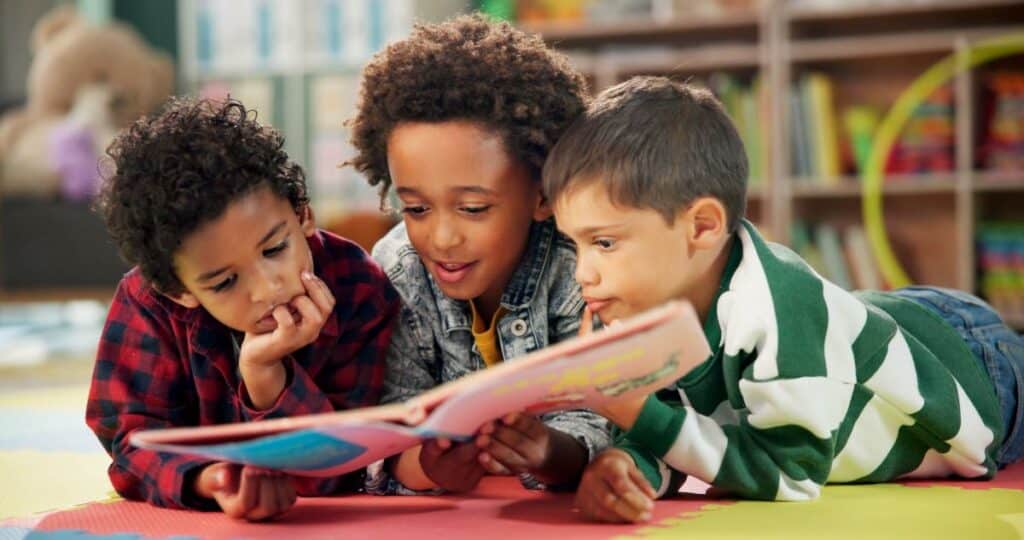Every educator knows the profound impact of a well-placed book in a child’s hands. Yet, in our bustling school environments, the foundational act of reading can sometimes be viewed as just another subject to teach, rather than the core superpower it truly is.
For K-12 administrators and teachers, understanding and championing the multifaceted benefits of reading isn’t just about fostering literacy; it’s about cultivating well-rounded, resilient, and academically successful individuals prepared for an ever-evolving world.
Consider the elementary school that transformed its struggling readers by dedicating 20 minutes daily to “choice reading,” where students selected books based on personal interest.
Or the high school that saw a marked improvement in critical thinking skills after integrating more complex, multi-genre texts into its curriculum. These aren’t isolated anecdotes; they are testaments to the transformative power of reading when strategically integrated into the educational fabric.
As educators, we are tasked with shaping minds and futures. Reading is not merely a skill; it’s a gateway to every other form of learning and development. Let’s delve deeper into the invaluable benefits that reading bestows upon our students, from kindergarten through to graduation.
Cognitive Development: Sharpening the Mind
Reading is the ultimate brain workout, building neural pathways that enhance cognitive functions crucial for academic and life success.
- Brain Exercise and Memory Enhancement: Just as physical exercise strengthens muscles, reading strengthens the brain. Engaging with narratives requires students to remember characters, plotlines, settings, and new information, directly improving memory retention and recall. This consistent mental stimulation can enhance overall cognitive agility.
- Improved Concentration and Focus: In an age of constant digital distractions, reading provides a much-needed antidote. Sustained engagement with a text demands undivided attention, training students to focus deeply for extended periods. This improved concentration translates into better performance in all subjects and tasks.
- Critical Thinking and Problem-Solving: Beyond simple comprehension, reading exposes students to diverse perspectives, complex problems, and intricate solutions. Analyzing character motivations, evaluating arguments, and predicting outcomes in stories hones their critical thinking and problem-solving abilities, enabling them to apply these skills to real-world challenges.
Literacy and Language Skills: Building Communication Mastery
The direct link between reading and language development is undeniable. Regular reading is the most effective way to expand vocabulary and refine communication skills.
- Vocabulary Expansion: Every book introduces new words, phrases, and linguistic structures. Through context clues and repeated exposure, students naturally build a rich vocabulary, which is fundamental for both written and oral communication. A robust vocabulary directly impacts comprehension and expression.
- Enhanced Writing Skills: Students who read widely are exposed to various writing styles, sentence structures, and rhetorical devices. This exposure implicitly teaches them how to construct well-formed sentences, organize ideas logically, and articulate their thoughts effectively in their own writing.
- Improved Reading Comprehension: It might seem obvious, but consistent reading directly improves a student’s ability to understand, interpret, and analyze texts. As they encounter more complex ideas and writing styles, their comprehension skills deepen, preparing them for academic rigor and information processing in the digital age.
Emotional and Social Development: Cultivating Empathy and Resilience
Reading offers more than just academic benefits; it profoundly impacts students’ emotional intelligence and social understanding.
- Fostering Empathy and Perspective-Taking: Through stories, students can step into the shoes of characters from different backgrounds, cultures, and experiences. This vicarious experience cultivates empathy, helping them understand and share the feelings of others, an essential skill for navigating complex social environments and fostering inclusive school communities.
- Social-Emotional Learning (SEL): Many narratives explore themes of courage, resilience, friendship, loss, and triumph. By engaging with these themes, students can process their own emotions, develop coping mechanisms, and build emotional resilience. Reading provides a safe space to explore difficult topics and develop a stronger sense of self.
- Reducing Stress and Promoting Well-being: Immersing oneself in a good book can be a powerful stress reliever. Reading transports students to other worlds, offering an escape from daily pressures. This mental break can lower stress levels, improve mood, and contribute to overall mental well-being, which is vital for a positive learning environment.
Academic Achievement and Lifelong Learning: Paving the Way for Success
Ultimately, the benefits of reading culminate in improved academic performance and a foundation for continuous learning.
- Improved Academic Performance: Students who read regularly tend to perform better across all subjects. Strong reading comprehension is vital for understanding textbooks, assignments, and test questions in subjects from history to science. The critical thinking and vocabulary gains from reading directly support success in every area of the curriculum.
- Cultivating Curiosity and Lifelong Learning: Reading ignites a thirst for knowledge. When students discover the joy of learning through books, they are more likely to become lifelong learners, seeking out information and new experiences independently. This intrinsic motivation is key to adapting and thriving in a rapidly changing world.
- Setting a Positive Example: For our younger students, seeing teachers and administrators model a love for reading is incredibly powerful. When reading is visibly valued and integrated into the school culture, it sends a clear message about its importance, encouraging students to mimic this crucial behavior.
Our Role as Educators: Nurturing a Reading Culture
As K-12 administrators and teachers, we have the unique opportunity to champion reading as more than just a subject, but as a vital tool for life. This means:
- Providing Diverse and Engaging Texts: Offering a wide range of genres, authors, and topics that reflect our students’ interests and backgrounds.
- Creating Dedicated Reading Time: Ensuring that students have protected time within the school day for independent reading.
- Modeling Reading: Sharing our own reading experiences and passions with students.
- Integrating Reading Across the Curriculum: Demonstrating how reading skills are essential for success in all subjects.
- Collaborating with Libraries: Leveraging school and public library resources to provide access to a wealth of books and reading programs.
Reading is not just about decoding words; it’s about unlocking minds, fostering empathy, and preparing our students to lead fulfilling and successful lives. By prioritizing and celebrating reading, we empower our students with the unseen superpower that will serve them long after they leave our classrooms.
You’ve got important career goals — we have the graduate program to get you there. Check out our available reading/literacy graduate degree programs to advance your career today!




